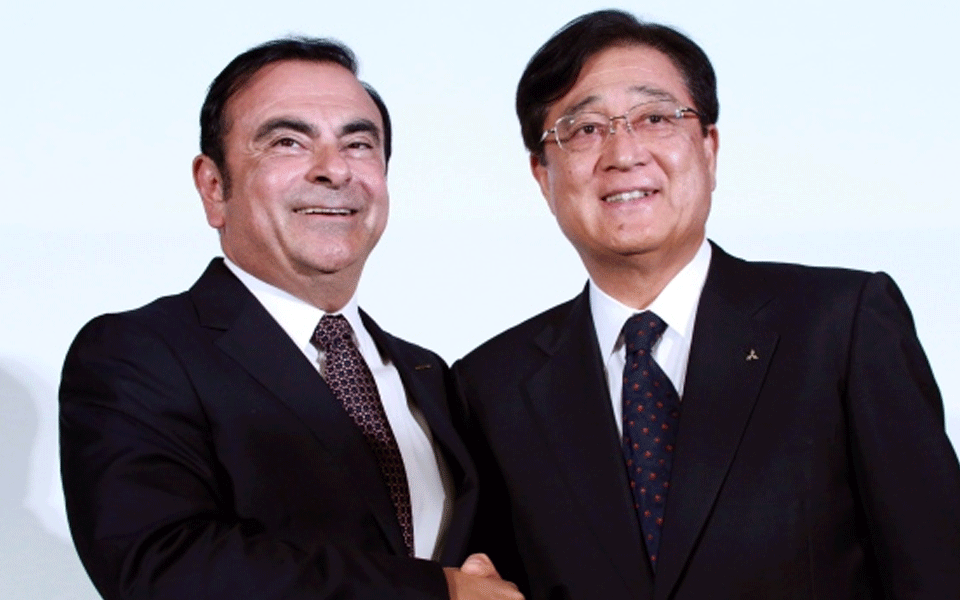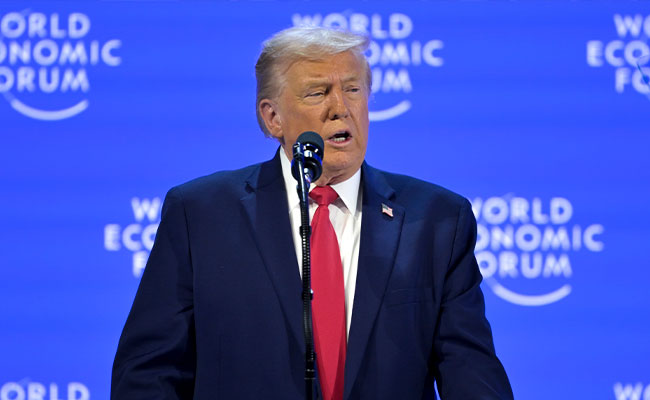Tokyo, Nov 26 (AP): The board of Japanese automaker Mitsubishi Motors, which is allied with Renault and Nissan, voted unanimously Monday to dismiss Carlos Ghosn as its chairman following his arrest last week.
Prosecutors arrested Ghosn on November 19 on suspicion he under-reported his income by USD 44 million over five years.
Nissan Motor Co ousted him as its chairman last week, saying an internal investigation prompted by a whistleblower also found Ghosn misused company money and assets.
Mitsubishi Motors' CEO Osamu Masuko, chosen by the board as acting chairman pending a shareholders' meeting, said Ghosn would not be able to perform his duties, considering his arrest and Nissan's dismissal of him as chairman.
Masuko said he did not know the specifics of the criminal allegations and declined comment on the case.
When asked for his personal view about the situation, Masuko said he was baffled.
"To be honest, I was shocked, and I couldn't believe it," he told reporters at Mitsubishi Motors' showroom at headquarters.
"I still can't figure out why, and I just don't understand."
But Masuko insisted the three-way alliance will persevere, saying it's critical for the automakers' futures, especially in working together on new technologies such as autonomous driving, artificial intelligence and connectivity for vehicles.
"We believe the alliance is needed," Masuko told reporters at Mitsubishi Motors' showroom at headquarters.
"Where the three companies are headed is not confrontation."
Ghosn was central in creating the alliance, but would have had to leave eventually, he said, adding just that the "timing had come sooner."
Renault has kept Ghosn as chief executive, while appointing an interim chair while the company awaits more information about the allegations against him.
The disruptions over Ghosn's case have added to worries about the future of the alliance between Renault, Nissan and Mitsubishi, whose status as the most recent addition could be more precarious.
European media have speculated that the case against Ghosn was partly driven by a desire to fend off moves to merge Renault and Nissan and keep the company under Japanese control.
Resentment within the Japanese automaker against Ghosn's pay and power may also have played a role.
Ghosn has been a dominant force in the Japanese auto industry for nearly two decades.
He led the addition of Mitsubishi into the alliance in 2016 after the smaller automaker was embroiled in an inspections reporting scandal.
Nissan holds a 34 per cent stake in Mitsubishi.
Japanese media, citing unidentified sources, are reporting that Ghosn and Greg Kelly, an executive who was arrested on suspicion of collaborating with him, are asserting their innocence. Ghosn has not commented publicly.
The two executives have not yet been charged. Under Japanese law, a suspect can be held in custody for up to three weeks per suspected charge without any charges being filed.
Let the Truth be known. If you read VB and like VB, please be a VB Supporter and Help us deliver the Truth to one and all.
Ranchi (PTI): The body of a migrant worker from Jharkhand’s Giridih district killed in Saudi Arabia in October last year has arrived at Ranchi Airport, but his family refused to accept it over pending compensation, officials said.
Shikha Lakra, team leader of the state migrant control cell, told PTI that, before taking the body of Vijay Kumar Mahato, the family is demanding compensation from the private company where he used to work in the Arab country.
Mahato was killed in an alleged crossfire between the police and criminals.
“Since it was a bullet injury case, the matter is before a court in Jeddah. The final compensation may depend on the court’s decision,” Lakra said.
“The Indian Embassy informed us about the body’s arrival, and coordination was done with district authorities. Our role is limited to coordination in cases involving overseas employers and foreign jurisdiction,” she added.
Giridih Deputy Commissioner Ram Niwas Yadav said the authorities will try to convince the family to perform the last rites.
“We have already sanctioned Rs 5 lakh under the government scheme for migrant’s deaths abroad. The compensation payment might take some time,” he said.
The body is currently at the mortuary of Rajendra Institute of Medical Sciences (RIMS) in Ranchi.
The Family members said they will only accept it if the company provides written assurance regarding compensation. “Without that assurance, we will not receive the body,” said Ram Prasad Mahato, the deceased’s brother-in-law.
Mahato, a native of Dudhpaniya village in Madh Gopali panchayat under Dumri block, was employed as a tower line fitter. His family said he was struck by a bullet during a gunfight between local police and an extortion gang and later succumbed to his injuries.
Social activist Sikander Ali said Mahato is survived by his wife, two young sons aged five and three, and elderly parents.





